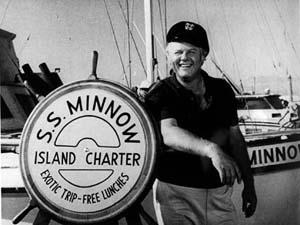Talk to each other people! Avoiding shipwreck.

The sound and tremor was unmistakable. We had hit rock ledges, eight miles from shore in the Atlantic Ocean. Most of the dozen passengers looked alarmed, but not yet outright panicked. Out the windows, just at the edges of the fog, we could plainly see we were, in fact, surrounded by rock. How we got here I didn’t know yet, but there appeared no escape.
We went up to the wheelhouse and overheard the captain radio to the mainland and say, “We’re lost on the shoals.”
“How can we help? What do you need?” came the reply over the radio.
Our captain said, “Just take a deep breath with us. We’re trying to get our bearings.”
My wife turned to me, “I think I’m going to throw up.”
I went to the stern of the boat with a young deckhand and asked him what he knew. Apparently, once we had set out from Monhegan, the captain went below to check the engines and left the helm with the first mate, an older salty gentleman who looked born with barnacles in his beard. The boy said although it was his first summer on the ferry line he knew that coming out of the island we should have a heading of 26 degrees yet the mate held a course of 355 degrees, slow and steady through the dense fog. The boy said nothing, and minutes later we hit the ledge. He quietly confessed to me he wished he had said something.
It also turned out that when the boat was drifting in light circles on and off the rocks, the radar system didn’t have a consistent heading to lock on to, and was also spinning in circles. Which explains why the captain wasn’t certain which way to escape the rocks.
I couldn’t believe this was happening. My wife later said, “See, these things actually happen!” But I still didn’t believe it. I bet that beautiful venerable old boat hadn’t hit a rock in forty years.
Once we steered clear of the ledge and set back on course, the captain came on the loudspeaker and explained what happened, accepted responsibility, and assured everyone the vessel was sound, that we were on course, and would arrive shortly. He also sent the crew below deck to look for leaks. That was reassuring.
There’s a few lessons in here:
- If the captain needs to check the engines, he should relay clear and concise instructions to next in command. Wait for acknowledgement. Then duck below to check the engine room.
- If the mate held an incorrect heading, how certain could he have been? Hard to say, but ask, ok?
- And if the boy was reasonably certain we were on a wrong heading, speak up. Even if the seasoned mate insists or corrects him, speak up.
And as for passengers, always check where the life jackets are stored. And read up on surviving a shipwreck.



